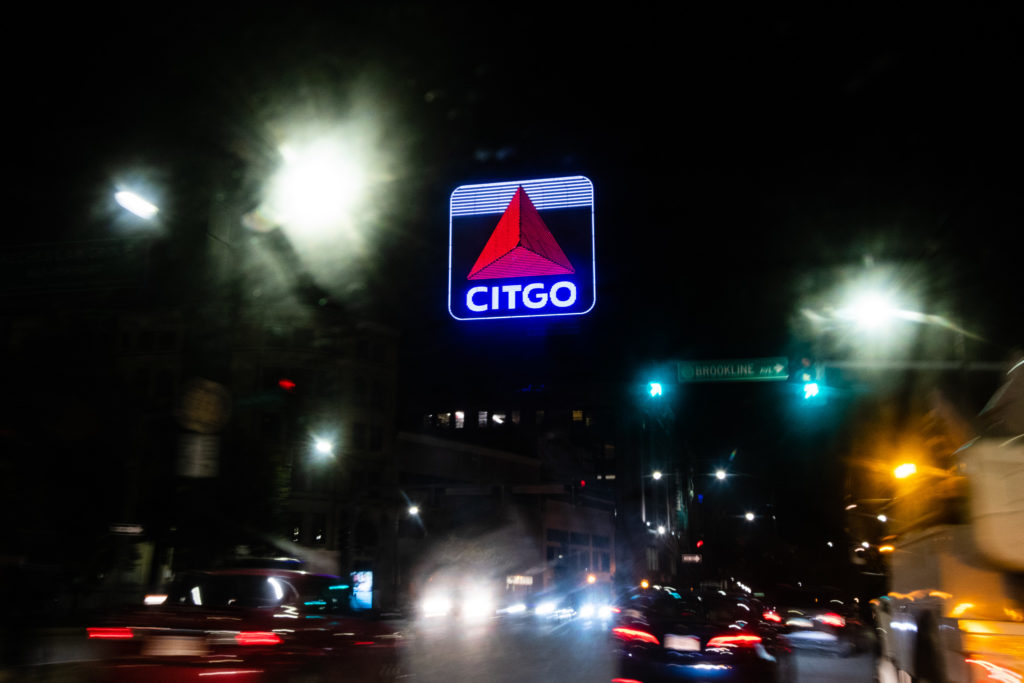By Jordan Baron, news correspondent
An iconic piece of Boston’s skyline is now facing controversy over its legitimacy as a landmark.
The Citgo sign, located on the top of a Kenmore Square building, has been in place since 1965. It has been seen as a cultural icon of the city, appearing in the backdrop of thousands of Red Sox games for the past 53 years.
“Whenever you think of a Red Sox game, it’s always something that pops into someone’s mind,” Ryan Keenan, a sophomore accounting major at Suffolk University, said. “They even have T-shirts made out of it. When you think of Boston, it is just something you think about.”
However, in 2016, the building on which the sign sits was put up for sale. The real estate firm Related Beal bought the property, starting a debate over whether or not the sign should be preserved. Related Beal does not support landmarking because they fear it could prevent future business and expansion in the Kenmore Square area.
The Boston Landmarks Commission has been working to give the sign official landmark status, but the process has been long and complicated.
The first step in the landmarking process is to create a pending landmark, which can only be done through petition. A petition can only be reviewed if it is signed by 10 registered Boston voters. Once the pending landmark status is complete, the commission can begin the process of creating a study report, which is a detailed report containing information about the object in the spotlight.
After the sign gained pending landmark status, and the study report was created, the commission held a public hearing on Oct. 9.
The next step in the process would be for the Landmarks Commission to hold another hearing, which is not currently scheduled, to decide whether or not to accept the study report and designate the sign as a landmark.
If the commission approves the report and determines the sign should be designated as a landmark, then the case is sent to the mayor’s office.
Related Beal does not support the landmarking of the sign.
“We believe the best way to preserve the Citgo sign is for the Commission to allow for the Study Report to remain pending, and to therefore serve as guidance to the City and its agencies, property owners, developers and the Kenmore Square community,” said Patrick Sweeney, managing director of Related Beal, in an email.
Kyle Posluns, a first-year computer science major at Northeastern who attended a hearing about the sign in early September, said he changed his opinion on the sign after he attended the meeting.
“It is definitely something that is unique to Boston and unique to Fenway and that makes it kind of special,” Posluns said. “Before I went to the meeting, I said yes, but after I am kind of weary about it. It would be a burden to the owner of the sign to keep it going.”
Overall, there are mixed opinions about whether the sign deserves Boston landmark status. The Citgo sign is not going anywhere for a long time, however, as Sweeney said that the firm has no plans to get rid of the sign soon.
“This has been a successful approach to Fenway Park, and will be successful for the Citgo sign, as the parties continue in good faith to finalize a long term lease to preserve the Citgo sign for the next thirty years,” he said.









